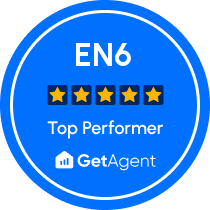EXPLORING FIRST-TIME BUYER SCHEMES IN 2024
Tuesday May 7, 2024
For prospective first-time homebuyers, navigating the complex landscape of purchasing property can be daunting. To assist individuals in overcoming various financial challenges associated with buying a home, the Government and developers offer a range of schemes tailored to specific needs and circumstances. Let’s delve into the key initiatives available in 2024 and how they can facilitate your journey into homeownership.
-
Mortgage Guarantee Scheme
Issue: “I can’t save a big deposit while paying rent.”
The escalating costs of housing present a significant hurdle for aspiring homeowners. With the average first-time buyer property price reaching £244,100—an increase of £2,800 from the previous year—saving for a substantial deposit becomes increasingly challenging, particularly amidst rising living expenses.
How it Works:
The Mortgage Guarantee Scheme facilitates homeownership with a smaller deposit requirement. By encouraging banks and building societies to offer 95% mortgages, the scheme enables buyers to secure a home with only a 5% deposit. Moreover, the government’s backing provides reassurance to lenders, mitigating risk.
Eligibility:
Open to both first-time buyers and home-movers nationwide, the scheme requires properties to be under £600,000 and must serve as the buyer’s primary residence. Repayment mortgages are mandatory.
Pros and Cons:
-
Pros: Reduced deposit requirement, extended scheme until June 2025.
-
Cons: Not all lenders participate, potential higher interest rates, risk of negative equity.
-
First Homes Scheme
Issue: “I can’t afford a home in my local area.”
High property prices in desired locations often deter first-time buyers. The First Homes scheme offers substantial discounts, making homeownership more accessible.
How it Works:
Qualified buyers receive discounts ranging from 30% to 50% on new-build homes or properties sold under the scheme. For instance, a £200,000 property could be purchased for £140,000 with a 30% discount.
Eligibility:
Available to local first-time buyers in England with household incomes below specified thresholds, the scheme requires a mortgage covering at least half of the home’s reduced price.
Pros and Cons:
-
Pros: Lower deposit and mortgage requirements, potential for reduced property costs.
-
Cons: Resale restrictions, limited availability information.
-
Shared Ownership Scheme
Issue: “I don’t earn enough to buy a home.”
Individuals with lower incomes can struggle to save for a deposit or qualify for a mortgage. Shared Ownership offers an alternative path to homeownership.
How it Works:
Shared Ownership allows buyers to purchase a share (starting from 10%) of a property and pay rent on the remaining portion. Over time, owners can increase their stake through ‘staircasing,’ gradually acquiring full ownership.
Eligibility:
Available to households earning under specified income limits, including former homeowners unable to afford current market prices.
Pros and Cons:
-
Pros: Lower initial investment, equity building, staircasing flexibility.
-
Cons: Limited availability through specific providers, ongoing maintenance responsibilities.
-
Lifetime ISA (Individual Savings Account)
Issue: “I can’t save much each month for a deposit.”
High living costs can impede savings for a home deposit. The Lifetime ISA offers a savings boost through government contributions.
How it Works:
Individuals aged 18-39 can save up to £4,000 annually in a Lifetime ISA, receiving a 25% government bonus on contributions. The funds can be used towards a first home purchase or retirement.
Eligibility:
Designed for first-time buyers purchasing a property valued at up to £450,000.
Pros and Cons:
-
Pros: Government bonus, potential for accelerated savings.
-
Cons: Withdrawal penalties for non-qualified expenses, annual contribution limits.
-
Help to Build: Equity Loan
Issue: “I want to self-build but it’s too expensive.”
Self-building offers customization but can be financially prohibitive. The Help to Build: Equity Loan aims to make this option more accessible.
How it Works:
This initiative provides interest-free loans for self-build projects, covering a portion of the costs. Applicants can secure a loan of 5% to 20% (up to 40% in London) of the total project expenses.
Eligibility:
Available to first-time buyers or existing homeowners constructing their primary residence.
Pros and Cons:
-
Pros: Facilitates self-build projects with reduced financial burden.
-
Cons: Loan becomes interest-bearing after five years, ongoing interest rate variability.
Exploring Further Schemes
In addition to the highlighted initiatives, various other schemes cater to specific demographics and circumstances.
-
Right to Buy: Offers discounts for council tenants.
-
Right to Shared Ownership: Allows social housing tenants to purchase a share of their home.
-
HOLD (Home Ownership for People with Long-Term Disabilities): Assists those with disabilities in acquiring shared ownership homes.
-
OPSO (Older Persons Shared Ownership): Enables individuals aged 55+ to purchase a share of a property.
-
Armed Forces Help to Buy: Provides interest-free loans to armed forces personnel.



